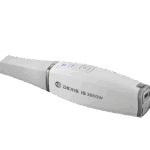The award is part of $10 million in funding through the state’s COVID-19 Vaccines, Treatments and Therapies (CV-VTT) program.
Penn Dental Medicine was among the 23 state-wide awardees from the administration of Pennsylvania Governor Tom Wolff to advance coronavirus research. The award to Henry Daniell, PhD, vice-chair and W.D. Miller Professor for the department of basic and translational sciences, is part of $10 million in funding through the state’s COVID-19 Vaccines, Treatments and Therapies (CV-VTT) program to support the rapid advancement of vaccines, treatments, and therapies.
Daniell was awarded just over $823,000 to accelerate the progress of two novel strategies for combating COVID-19, both of which leverage decades of experience with the successful development of plant-based protein therapies to develop targeted oral therapeutics and vaccination strategies.

In the therapeutic realm, Daniell, in collaboration with Kenneth Margulies, MD, of Perelman School of Medicine, is pursuing first-in-human studies of an oral preparation that directly supplements two beneficial proteins — ACE2 and its protein product, angiotensin (1-7) — that are severely depleted in COVID-19 patients. It will assess whether a drug developed for a very different condition— pulmonary arterial hypertension (PAH) — could reduce lung and heart injuries in coronavirus patients.
Reduced ACE2 expression has been linked to acute respiratory distress, severe lung injury, multi-organ failure and death, especially in older patients. Daniell’s earlier preclinical studies in PAH animal models showed that orally delivered ACE2 made in plant cells accumulated ten times higher in the lungs than in the blood and safely treated PAH. His proposed clinical studies would explore whether oral supplementation of ACE2 and angiotensin-1-7 can help mitigate complications of COVID-19 disease.
“Most therapeutic strategies being explored to mitigate the severe respiratory and extrapulmonary pathology caused by COVID-19 involve the repurposing of antiviral therapies that have been developed for other viral infections,” explains Daniell. “We plan to specifically target the pathophysiologic mechanisms invoked by COVID-19 infection.”
Daniell is also developing a plant-based oral vaccination to induce durable mucosal immunity suitable for boosting waning immunity following an injected vaccine. “Virtually all COVID-19 vaccination strategies use injectable vaccines that will produce systemic immunity, but will not promote mucosal immunity,” he says. “Mucosal immunity is required to protect at viral entry ports and to be more durable in patients with compromised immune systems.” For evaluation of his vaccine in rhesus macaque monkeys, he’ll collaborate with Jay Berzofsky, MD, PhD, of the Center for Cancer Research, National Institutes of Health.







